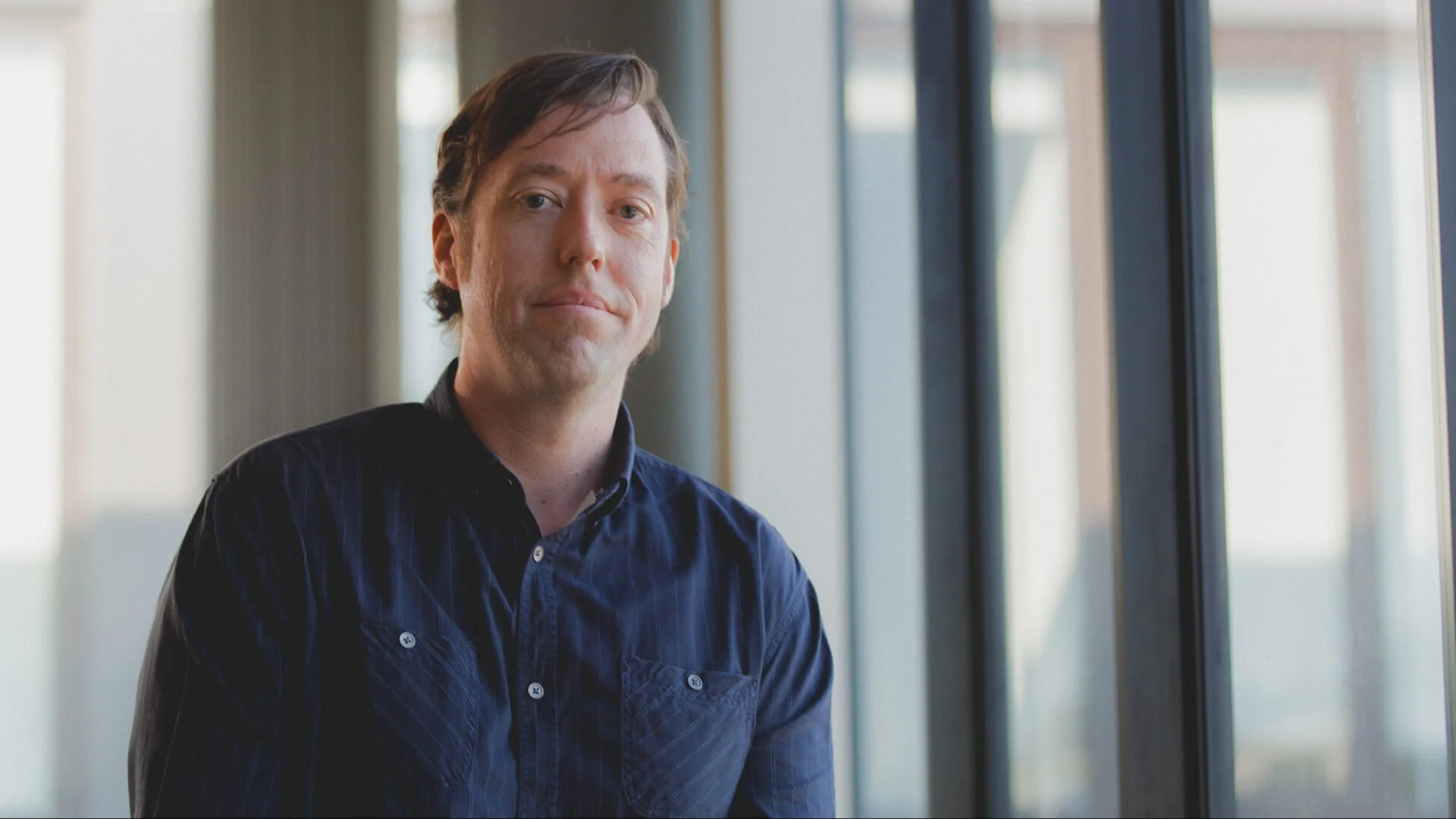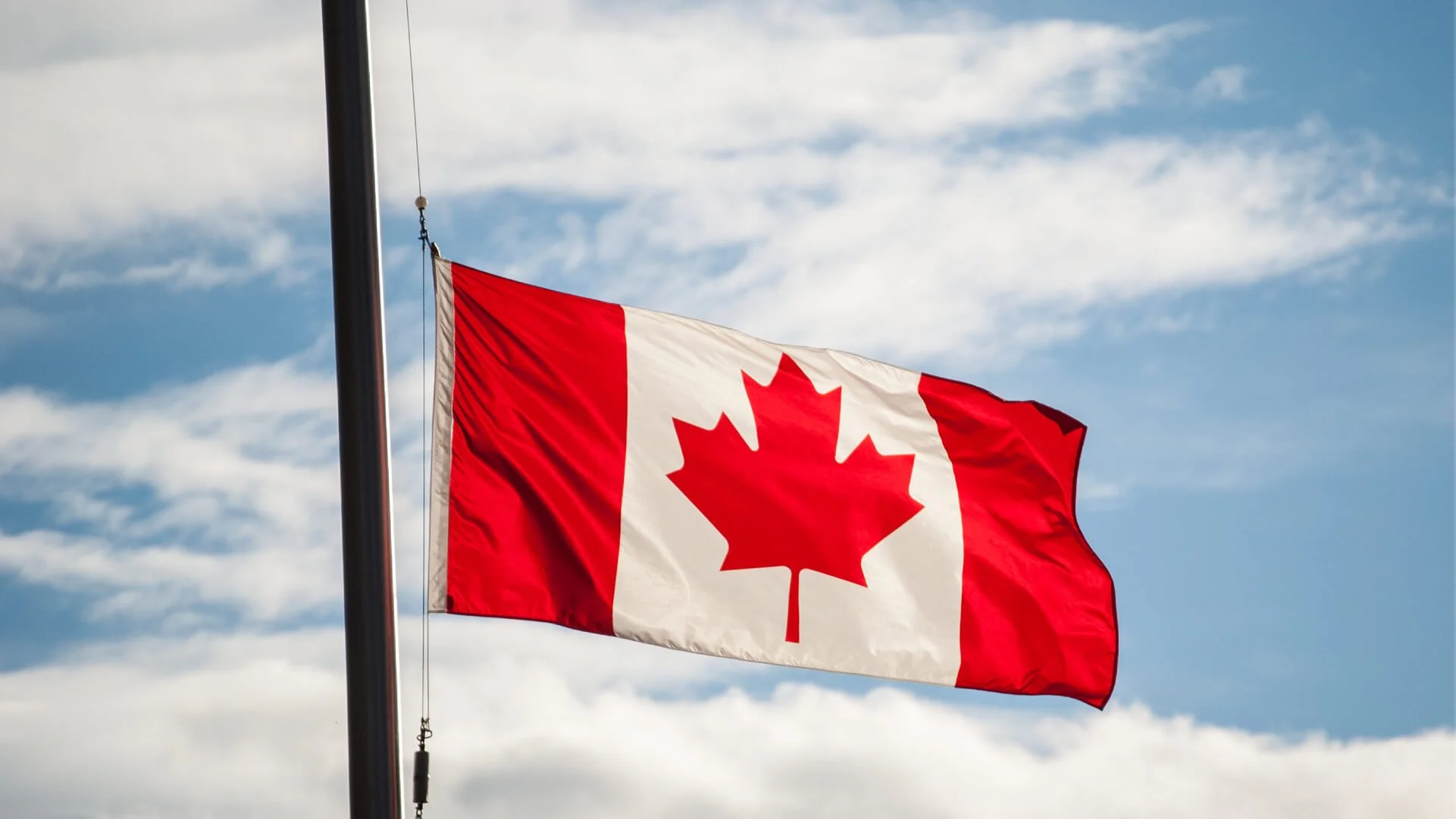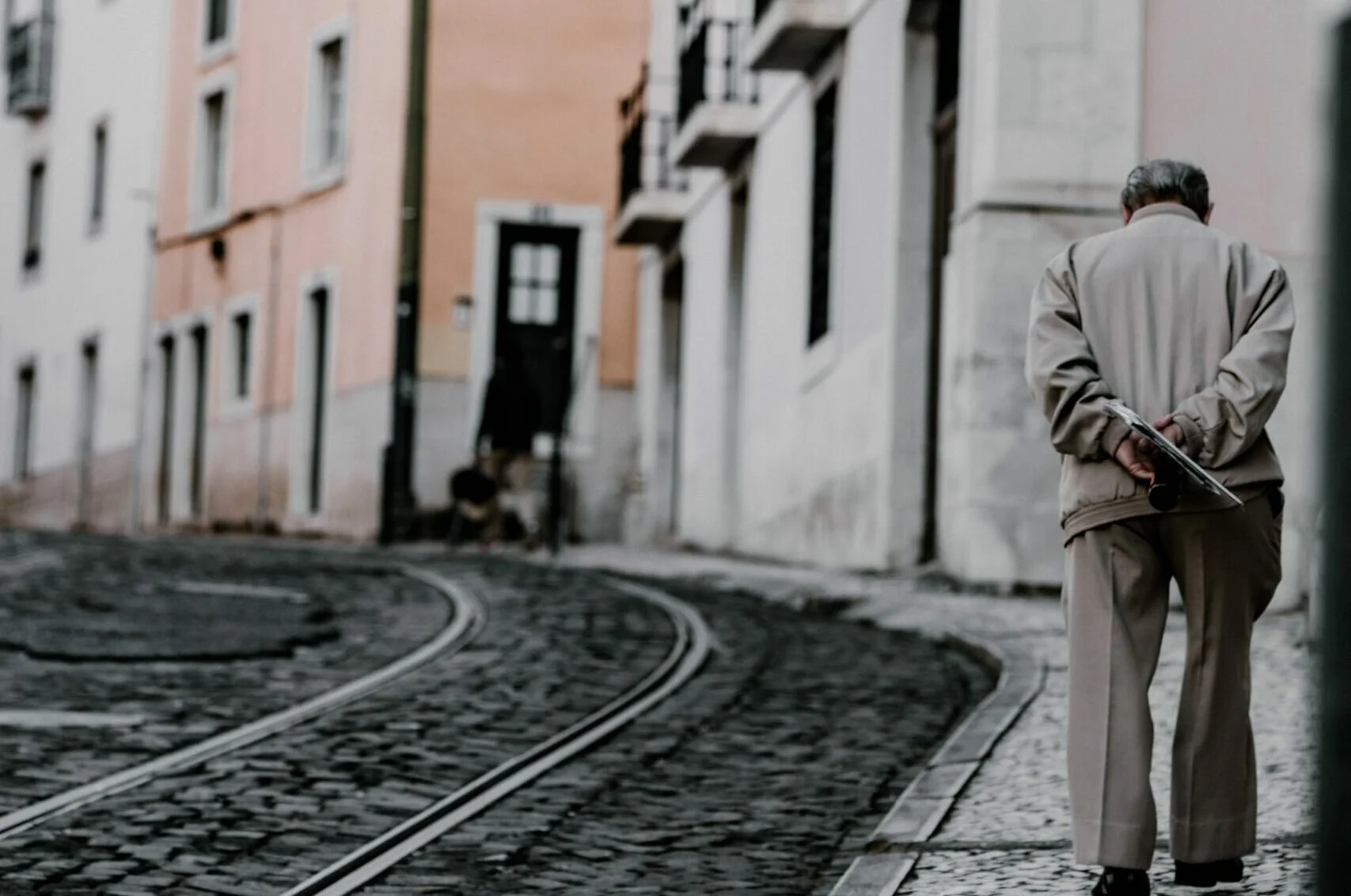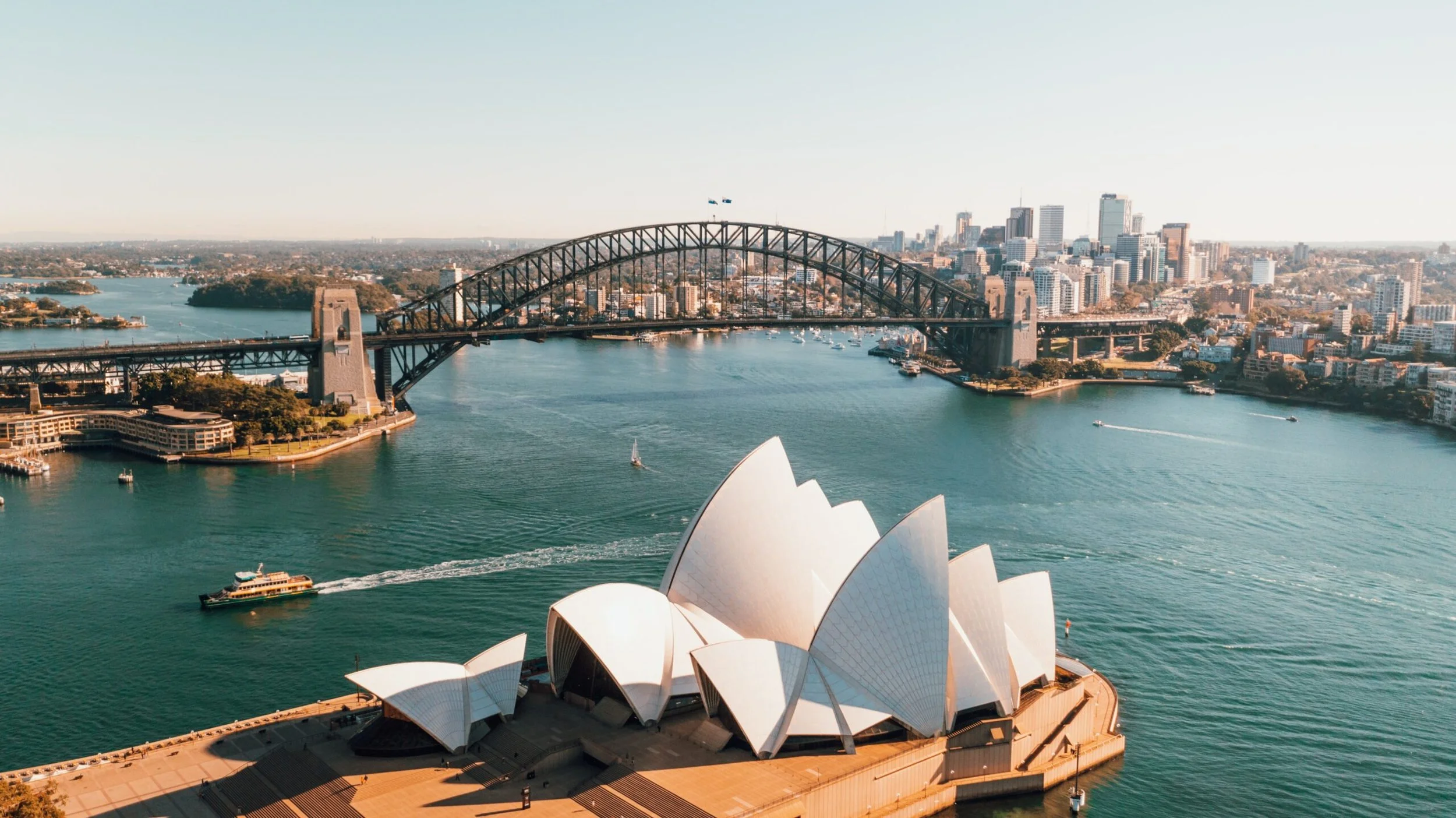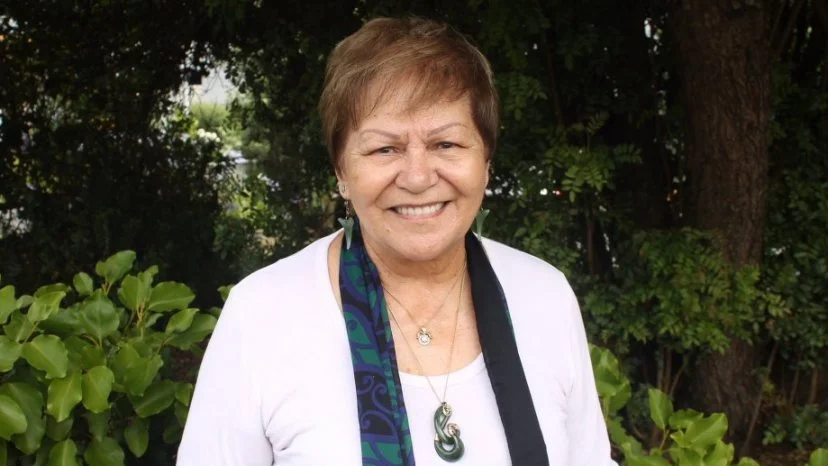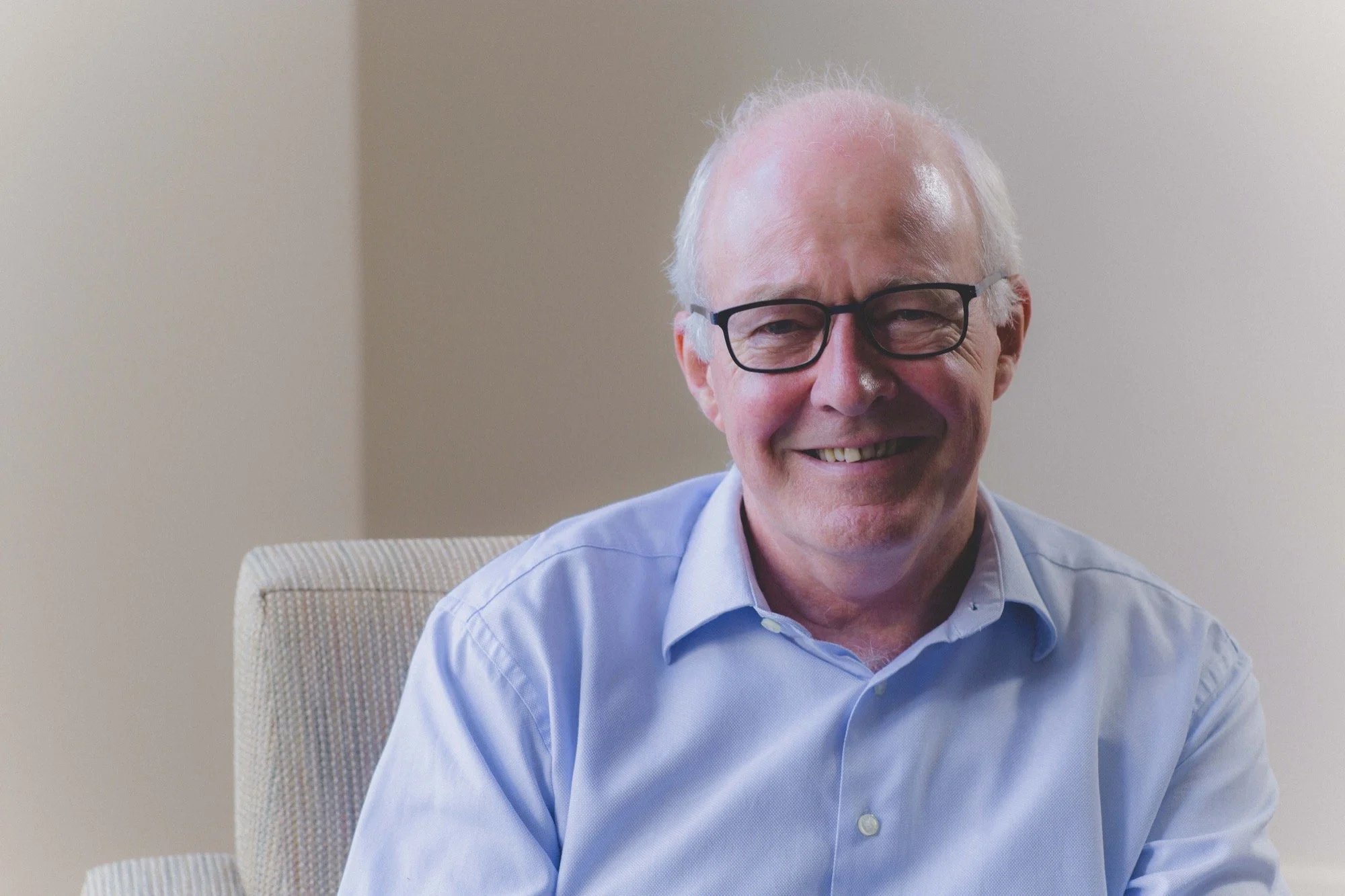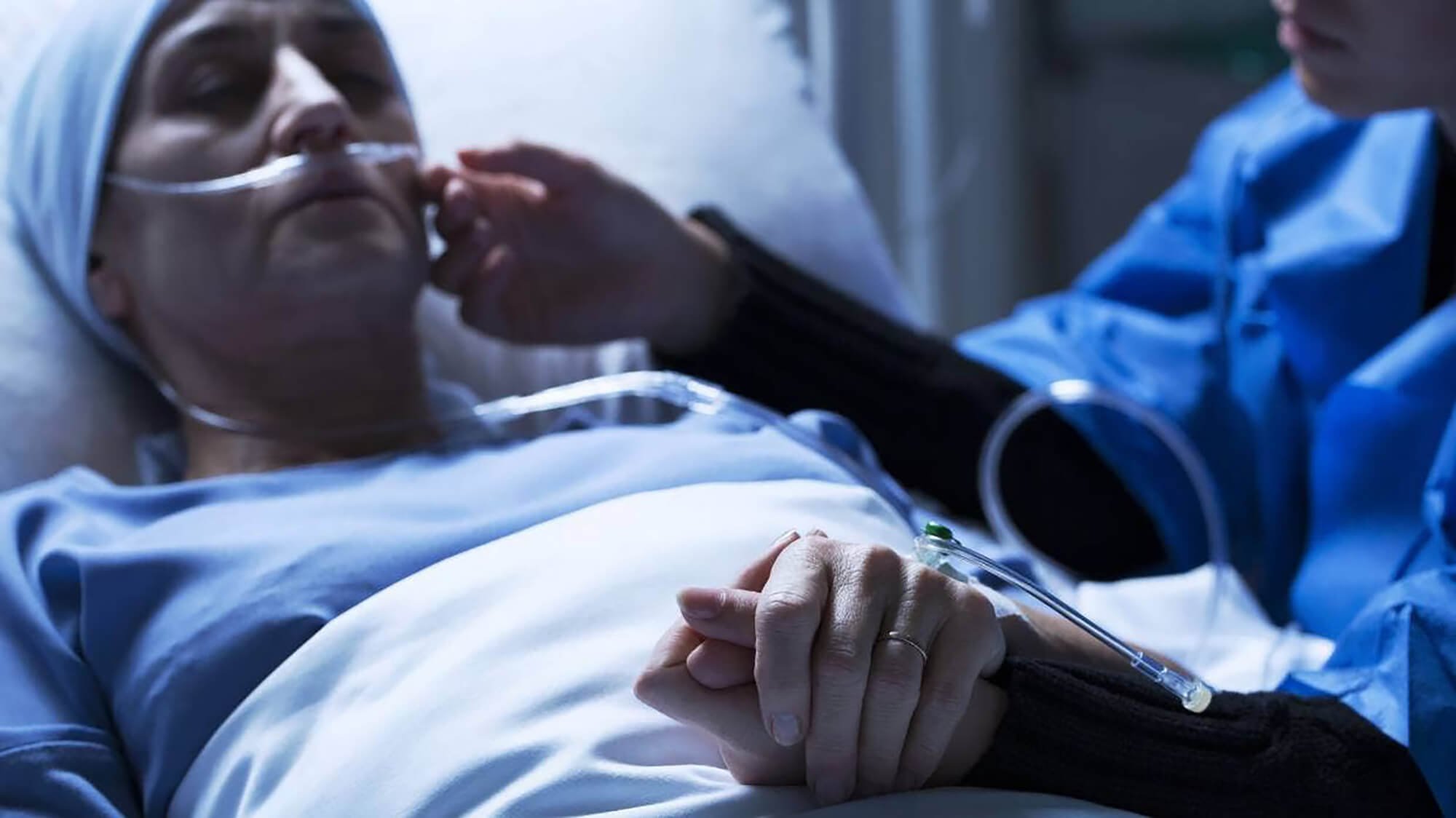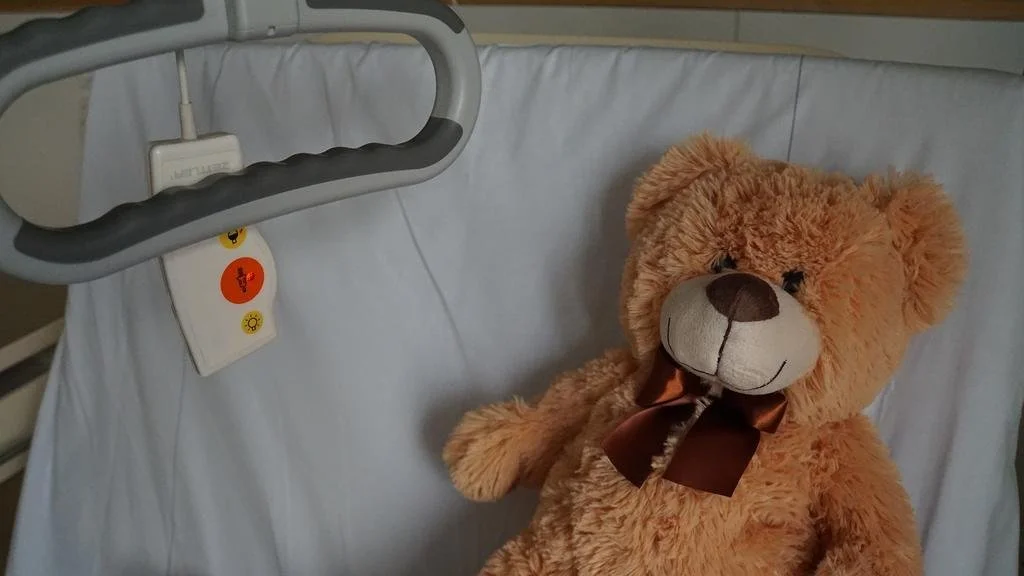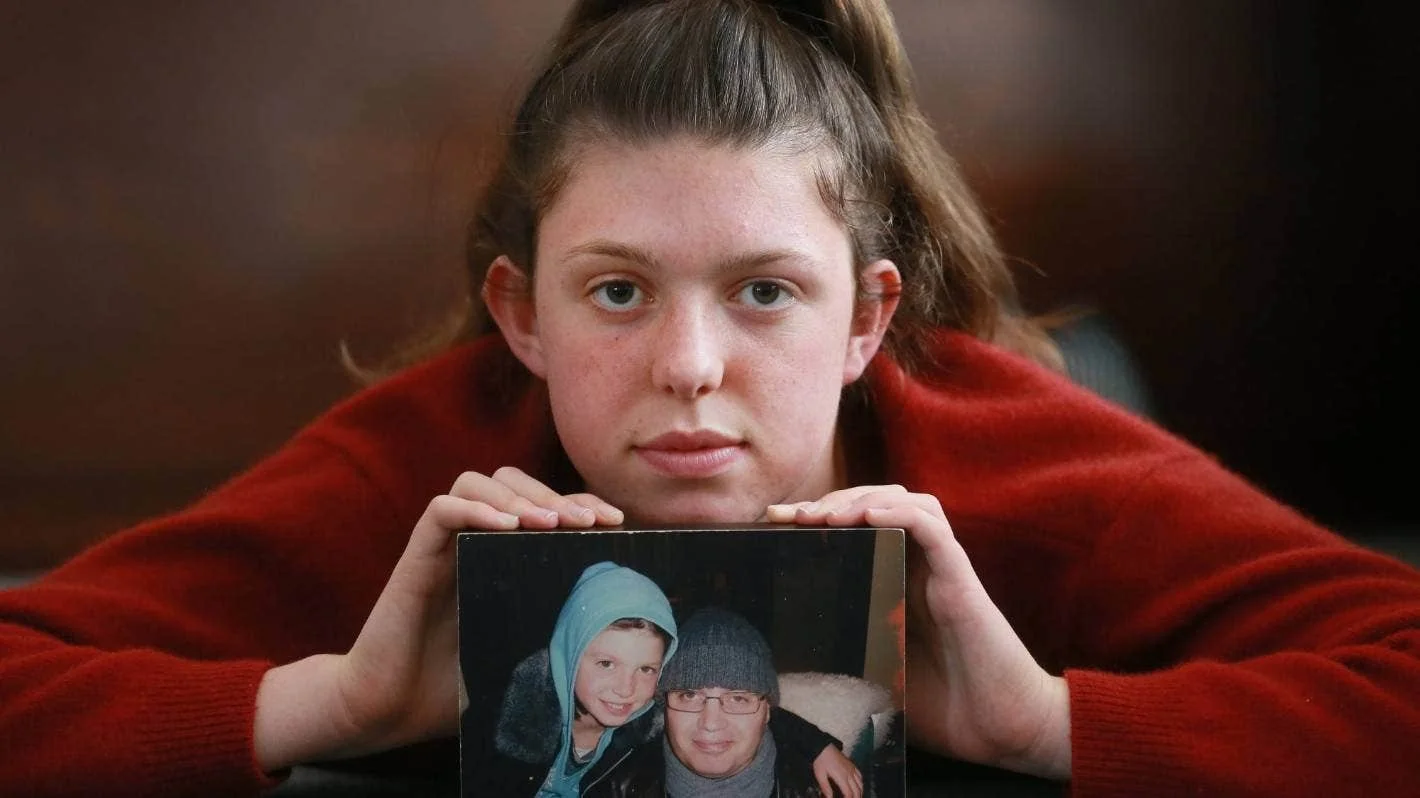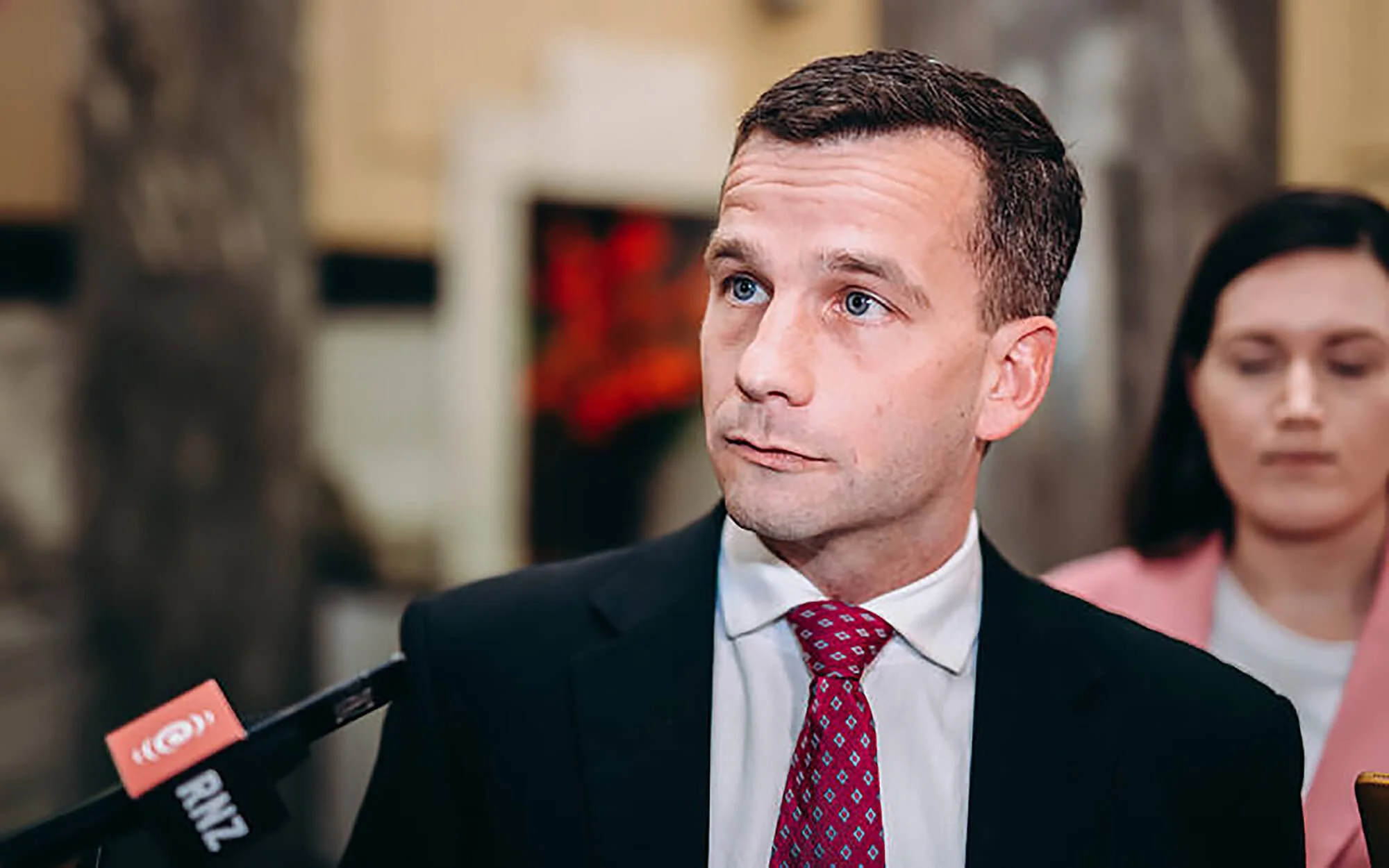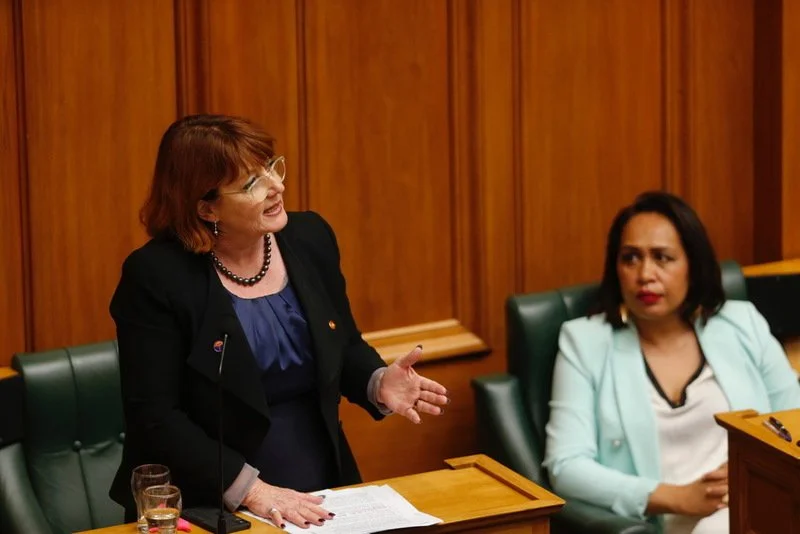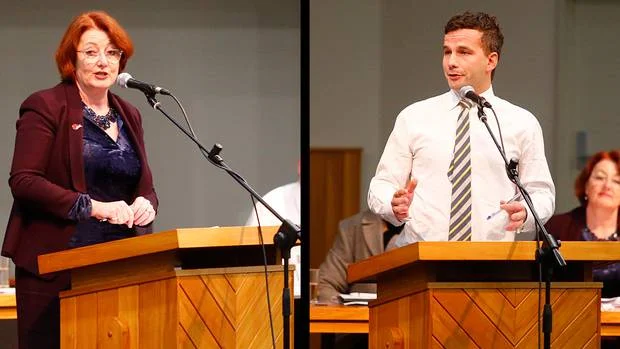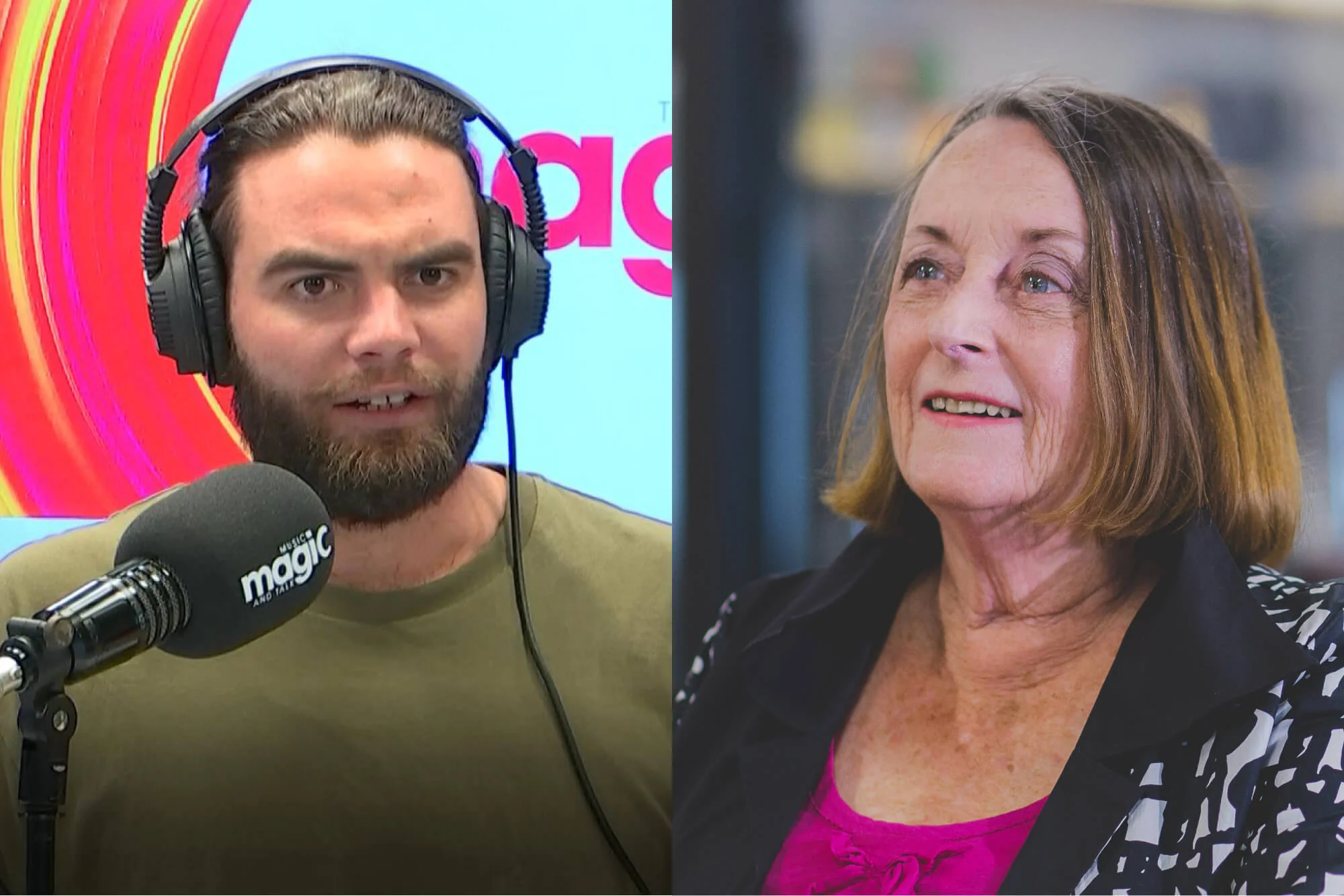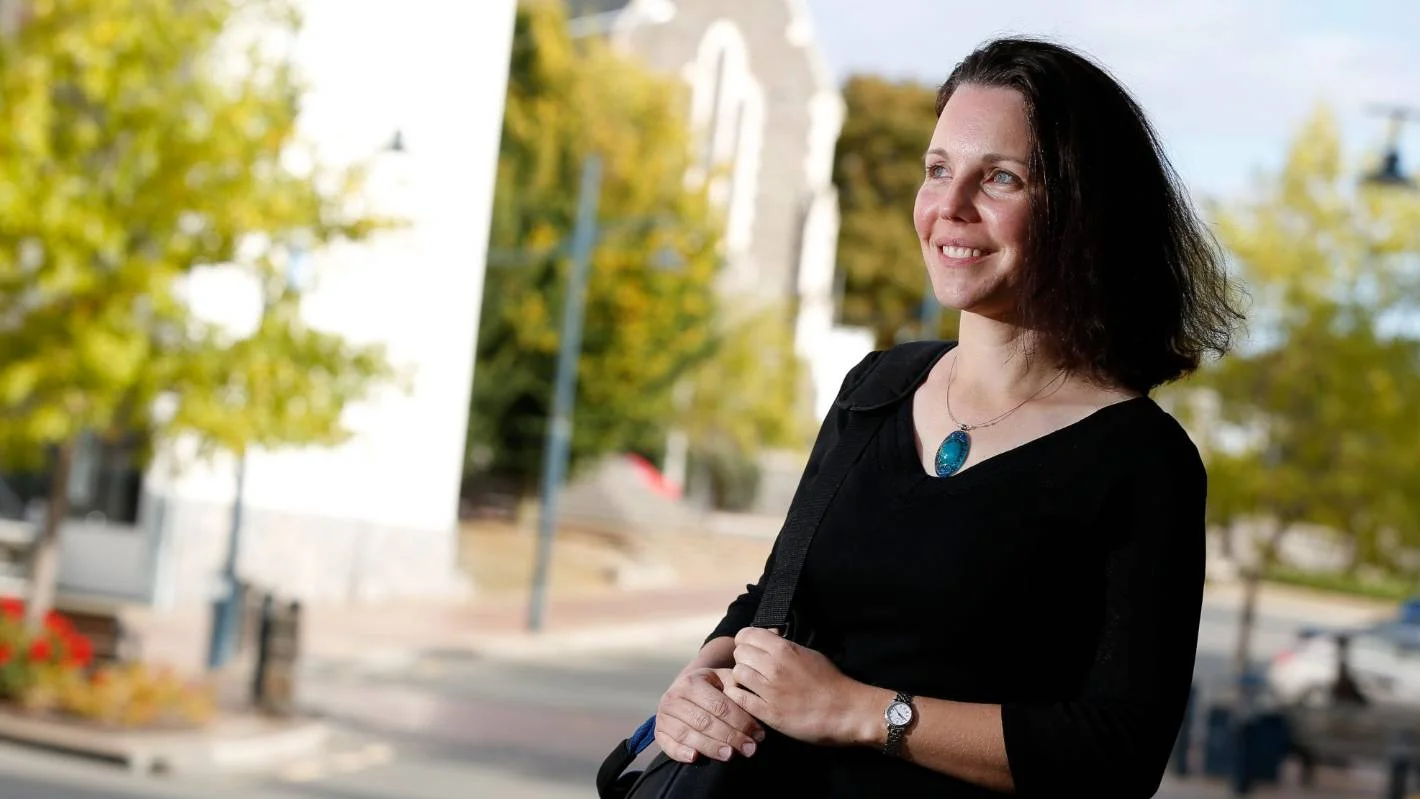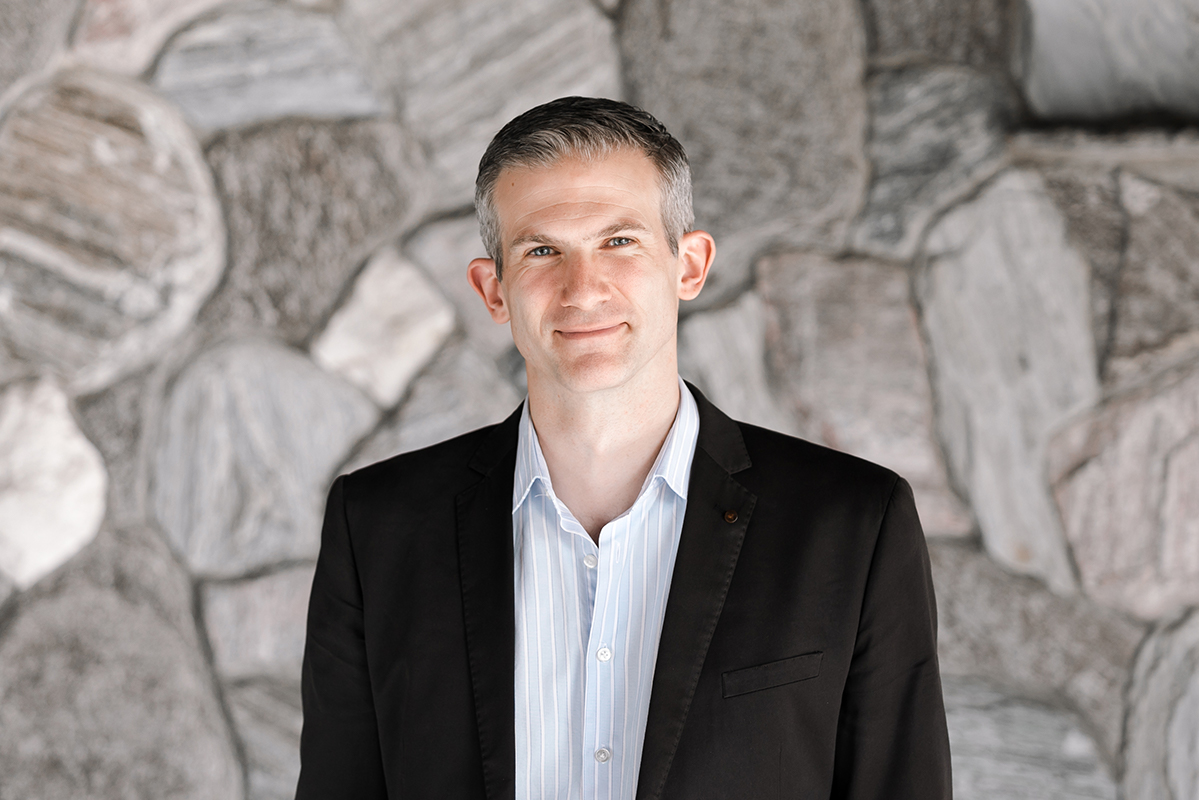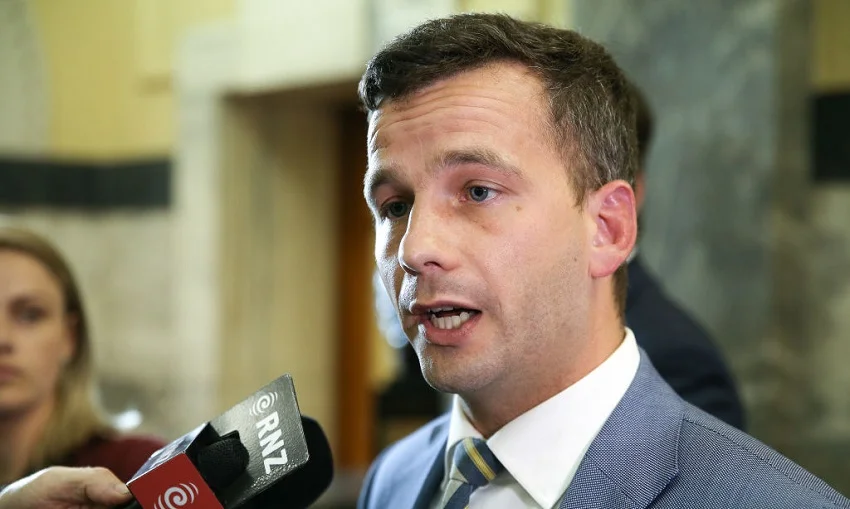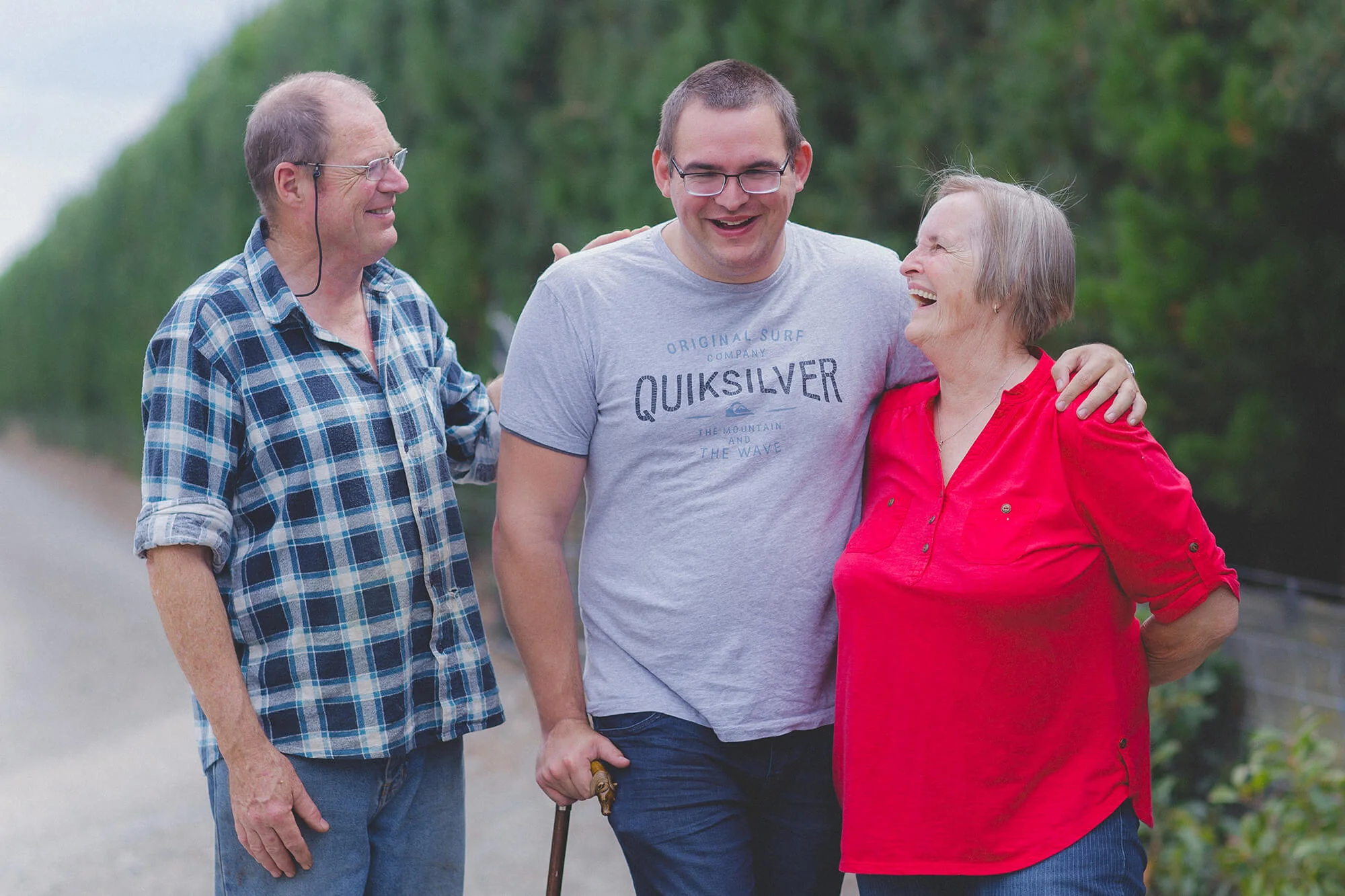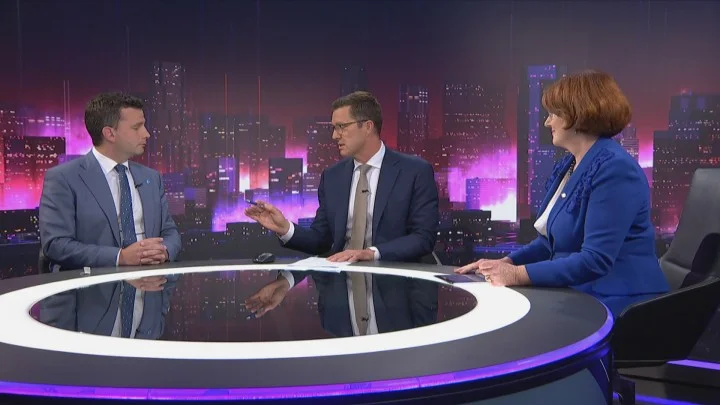A Canadian woman experiencing ongoing long Covid symptoms more than two years after catching the virus has applied for voluntary euthanasia. Tracey Thompson, a Toronto resident in her 50s, told CTV News she had begun the process of applying for Medical Assistance in Dying (MAiD), a procedure that first became legal in Canada in 2016, due to her enduring illness and lack of financial support.
Read MoreBy Tracy Watkins: The Ministry of Health has six full-time workers dedicated to euthanasia; none dedicated to palliative care. The fear is that it’s not a free choice at all between euthanasia and palliative care when the odds are so heavily stacked against dying patients accessing the sort of palliative care they deserve. This was my fear in 2020 when the euthanasia laws were being debated; that we hadn’t earned the right to euthanasia so long as we continued to do palliative care on the cheap. Clearly nothing has changed since then. If anything, the situation has worsened. Shame on us. We need to do better.
Read MoreBy the Pulse. The Pulse host Kate Cormack interviewed Henoch Kloosterboer, spokesperson for #DefendNZ and Editor of The Defender, on the latest news around the topic of assisted suicide and euthanasia in New Zealand, including the recent screening of a biased documentary on TVNZ’s Sunday programme, as well as the dramatic increase in numbers of people seeking and going through with an assisted suicide or euthanasia death.
Read MoreBy Yuan Yi Zhu. Since last year, Canadian law, in all its majesty, has allowed both the rich as well as the poor to kill themselves if they are too poor to continue living with dignity. In fact, the ever-generous Canadian state will even pay for their deaths. What it will not do is spend money to allow them to live instead of killing themselves.
Read MoreBy Michael Cook. A leading eating disorder specialist has proposed that patients with anorexia nervosa should be allowed access to assisted suicide. However, bioethics writer Wesley J. Smith, writing in the National Review, slated this approach as “abandonment”.
Read MoreBy Laura Hooper. Southland man Robert Goodwin can vividly recall the day he was wheeled out of surgery at Dunedin hospital and given six months to live. It was a special moment when he realised he had made it 50 years since the prognosis, Goodwin said. “I did have a few too many beers with a couple of mates ... I’m very proud,” he laughed.
Read MoreBy Michael Cook. The president of Portugal has refused to sign a bill legalising euthanasia and physician-assisted suicide. Marcelo Rebelo de Sousa criticised its wording as imprecise. This effectively shelves the euthanasia bill until a new parliament and government are chosen early next year.
Read MoreBy Esther Ashby-Coventry. Anyone seeking assisted dying will not be allowed to undertake the procedure on site at Hospice South Canterbury or Highfield LifeCare in Timaru. “We will continue to strive to minimise suffering be it physical, emotional, spiritual, social or psychological. We will also continue to support families and whānau, before and after a patient’s death.”
Read MoreBy James Addis. An anti-euthanasia activist who fronts the national #DefendNZ campaign says the debate on the End of Life Choice Act (EOLCA) is far from over. Henoch Kloosterboer says since the passing of the Act, advocacy for the vulnerable has become more critical than ever. “Some New Zealanders now wield the state-sanctioned legal power to deliberately end the lives of others, or to assist in their suicides,” he says.
Read MoreBy Michael Cook. Research shows that the experience of losing a parent through suicide is a risk factor for children. How about assisted suicide and euthanasia? Does assisted dying ( euthanasia and assisted suicide) have a negative impact upon other people? It’s rare for this question to be raised in debates. If it is, supporters dismiss it – it’s my life and it’s none of their business, is their response.
Read MoreBy Tom Hunt. Many millennials are forecast to die badly with reports of a palliative care system already struggling on dwindling fundraising and experts saying we already have a “postcode lottery” determining who dies in pain. “It is ironic that the new end-of-life-choice service is fully funded, and our hospice care funded less than 50 per cent.”
Read MoreBy Lee Harding. Recently released statistics and anecdotal accounts have caused anti-euthanasia activists increased concern, as they believe medically assisted death is not only permitted, but encouraged. Medically assisted deaths in Quebec rose to 2,426 in the year ending March 31, an increase of 37 percent over the year before.
Read MoreBy Michael Cook. On Friday the Parliament of NSW began its debate on the controversial bill to legalise “voluntary assisted dying”. Premier, Dominic Perrottet said, “A strong society protects and cherishes its most fragile members. This bill at its heart enshrines a new principle—that we can intentionally help terminate the lives of certain people to end their suffering. It turns on its head a bedrock of our ethics—that we help, not hurt; that we offer hope, not harm.”
Read MoreBy Danielle van Dalen. I would never expect my doctor's pay cheque to come from “cakes and op shops”. But for New Zealand's palliative care services, this is the reality. Fundraising is required to cover about half of the costs of Hospice NZ each year. $77m must be fundraised every year to cover the shortfall; much of that coming from op-shops.
Read MoreBy Right To Life News: As New Zealand’s euthanasia legislation comes into effect, anti-euthanasia campaigners have launched an initiative to begin the path towards repealing the legislation and protecting the vulnerable. #DefendNZ has launched a new campaign to “protect” the vulnerable from the new law, and to “expose and improve” the law as it is written.
Read MoreBy Waatea Team. The End of Life Choice Act is now law, but a Taitokerau leader says there’s a lot of talking still needed for Māori to come to terms with the change. She says the process can make family feel left out, and challenges some firmly held tikanga. Dame Naida Glavish says consultation with Māori on the law was minimal compared with the extensive discussion that went on over the legal framework of organ donation.
Read MoreBy Dr Sinéad Donnelly, Prof Rod MacLeod MNZM, Dr Richard Egan and Dr Simon Walker. The End of Life Choice Act marks a significant shift in both medical and societal responses to suffering. It will be crucial to pick up whether people are opting for assisted dying (or choosing it earlier than they might otherwise) because of a lack of access to high-quality palliative care.
Read MoreBy James Addis. Harbour Hospice has taken a stand against assisted dying, refusing to allow medication designed to hasten death to be administered at any of its facilities. Harbour Hospice chief executive Jan Nichols says Hospice has taken the position based on the “global philosophy of hospice care”, which is “to neither hasten nor postpone death.”
Read MoreBy Thomas Manch. Ministry of Health officials have highlighted “complex and sensitive elements” to the End of Life Choice Act. Among the issues: competing pressures in the health system, possible need to rewrite parts of the law to resolve “legislative issues”, and numerous unresolved questions and risks surrounding assisted dying services.
Read MoreBy Ben Leonard. About one in five disabled adults cannot afford to visit a GP – hindered by consultation and transport costs. The Government’s planned changes to disability support must address the cost of accessing primary healthcare, the Disability Rights Commissioner says.
Read MoreBy Guyon Espiner. More than a 1000 people are expected to request to end their lives in the first year of New Zealand's assisted dying regime. The lack of doctors willing to carry out assisted dying may lead to those doctors who are willing to have to travel the country administering euthanasia if the service is not available in all areas.
Read MoreBy Guyon Espiner. Patients requesting euthanasia will be given unapproved, unregulated and "off label" medicines, sparking warnings of prolonged and distressing deaths. People who chose to swallow or ingest the fatal medicines, rather than taking them intravenously, would be given drugs that were compounded (mixed up) by a pharmacist and provided to the patient without being approved by regulator Medsafe.
Read MoreBy Guyon Espiner. What happens if a patient doesn't die during a euthanasia attempt? That's one of a number of ethical and legal questions being asked by palliative care experts who say we are woefully unprepared to introduce assisted dying. “Death doesn't necessarily follow within minutes or even hours, it can take a lot longer and well documented cases of stuff not working."
Read MoreBy Guyon Espiner. Palliative care specialists fear health practitioners with as little as six hours online training could end up providing euthanasia for patients who would have wanted to live if they had proper care and pain relief. Their concerns come as a new Ministry of Health survey reveals fewer than a third of health practitioners are prepared to participate in the assisted dying regime.
Read MoreBy Joan Bryden. Intolerably suffering Canadians who are not near the natural end of their lives now have the right to seek medical assistance in dying. But disability rights groups have strenuously opposed the bill, arguing it devalues the lives of people with disabilities, particularly those who are Black, racialized, Indigenous or marginalized.
Read MoreBy Will Harvie. Medical students become more opposed to euthanasia as they progress through medical school, a new study has found. Almost 65 per cent of second year medical students at Otago University supported euthanasia or assisted dying, compared with 39 per cent in fifth year, the researchers found.
Read MoreBy Mike Houlahan. An Otago doctor believes the Ministry of Health is trying to use money to entice medical professionals into offering euthanasia services. “I was shocked when, upon answering that I will not take part in assisted dying, the MoH survey offered the following question: ‘What areas would you want more information on for you to be willing to provide assisted dying services?’’”
Read MoreBy Eva Corlett. Doctors are gearing up for a hefty year of planning and preparation with the End of Life Choice Act set to come into force. The New Zealand Medical Association opposed the law, but its chair Dr Kate Baddock said the country had spoken. The law allows doctors to be conscientious objectors of euthanasia.
Read MoreBy Dr Huhana Hickey MNZM. In 12 months assisted dying will be legal as, unsurprisingly, the mainstream demographic has predictably spoken with a 65.2 per cent yes vote in the preliminary results. I remain opposed to this law for two reasons – those being the risk to indigenous people and the disabled, as evidenced by international research in countries where it is legal.
Read MoreBy Hannah Martin. Assisted dying and euthanasia will be legal in New Zealand next year, with the public voting through the End of Life Choice Act. The Electoral Commission released the preliminary results on Friday afternoon. Meanwhile, conservative lobby group Family First has called the result a “sad and dangerous day for the vulnerable”.
Read MoreThe Hauge. The Netherlands moved towards making euthanasia legal for terminally-ill children aged between one and 12 after the coalition government on Tuesday (Oct 13) backed the move. Health minister Hugo de Jonge said he would now draft regulations for the practice, after a study by experts showed some children were suffering "hopelessly".
Read MoreBy Dr Hirini Kaa. I’m voting no on the End of Life Choice (EOLC) referendum. I have many concerns about this legislation, including around the technical aspects and operation of the law. But I’m also very concerned about its impact on the vulnerable and marginalised in our society. Here are my top four reasons.
Read MoreBy Richard McLeod. Although privileged New Zealanders who become terminally ill may have many other choices available to them, the law will also apply to terminally ill New Zealanders who are vulnerable and weak. For them, the “Your life your choice” mantra rings hollow. There’s no compassion in ending the life of someone who has little or no other choice.
Read MoreBy Kevin Campbell. It is of further serious concern is the process by which the End of Life Choice Act has got to a binding referendum, together with the poor understanding among voters of what the referendum is about. It is significant, but shameful, that Prime Minister Jacinda Ardern has stated she believed that euthanasia should never have gone to a referendum.
Read MoreBy Dr Ben Gray. The End of Life Choice Act will require significant resources which may only benefit a small number of older, educated white people, argues the University of Otago's Dr Ben Gray. “Changing the status quo now will require focus on this issue and take attention away from the much more serious issues of responding to the Covid-19 pandemic.”
Read MoreBy Ellen O'Dwyer. In the years he was mobile, Rachel would curl the ball through the goal posts of his walker, practising her winning kicks. Rachel Major shared her love of football with her dad Glenn until she was nine. Glenn died at the age of 42 of a brain tumour, having been diagnosed with cancer before Rachel was born.
Read MoreBy Grant Illingworth QC. As New Zealanders, we like the idea of having a choice. We also like the idea of showing compassion towards those who are suffering. Rightly so; but the assisted dying referendum does not involve voting about an idea; it concerns a set of rules that have already been drafted and enacted by Parliament. Those rules will come into force automatically if a majority vote in favour of them.
Read MoreBy Alex Perrottet. Most campaigners over the two referendums in this year's election are breathing a sigh of relief that voting day has been delayed another month, giving them time to change more minds. The two referendum topics have been subject to much debate this year, but for those most involved in the campaigning it's clearly not enough.
Read MoreBy Patrick Gower. Vicki Walsh was told in June 2011 her brain cancer diagnosis was terminal and she only had 12 to 14 months to live. However, now aged 53, Walsh has had nine more years of life since. She says that might not have happened if the choice of assisted dying had been available and will vote against legalising euthanasia in the referendum.
Read MoreBy Caralise Trayes. Most Kiwis aren't aware that the end of life choice act is not a concept they'll be voting for, but specific, unmovable legislation. And if we make a mistake, death is a heavy penalty, writes Caralise Trayes.
Read MoreBy Mike Corder. A Dutch organization that carries out euthanasia received 3,122 requests last year, a 22% increase from the year before, the Euthanasia Expertise Center said Friday. “Every work day, 13 people say: ‘Help me, I can’t go on,’” Steven Pleiter, director of the center formerly known as the End of Life Clinic, said.
Read MoreBy Jo Moir. New Zealanders now have the casting vote on whether to make euthanasia legal. Last night Parliament voted 69 votes to 51 in favour of the End of Life Choice Bill that proposes to make assisted dying legal for some terminally ill people. After New Zealand First secured a change three weeks ago to ensure the decision would be sent to a referendum, it will not be known whether the bill becomes law until next year.
Read MoreBy Henry Cooke. MPs have casted their final votes on the End of Life Choice Bill. That bill would set in motion a public vote on legalised euthanasia. "The most liberal Parliament in New Zealand's history has voted through this dangerous and permissive bill. Now the only hope of stopping euthanasia being legalised is through a referendum at the election," Maggie Barry said.
Read MoreBy Henry Cooke. David Seymour's End of Life Choice bill has passed its second reading 70-50 and is taking legal assisted dying one step closer to becoming law. Labour and National MPs voted with their conscience on the issue, while Green and NZ First MPs all voted in support. "We cannot risk one wrong death. This bill cannot guarantee that will not happen," Agnes Loheni said.
Read MoreBy Jannah Dennison. It is extraordinarily difficult to discuss suicide and euthanasia at the same time. But there is an urgent conversation to be had: what are the implications for New Zealand’s suicide prevention programme of introducing the End of Life Choice Bill?
Read MoreDr Mustafa Farouk QSM: FIANZ, the voice of New Zealand’s Muslim community since 1979, is opposed to euthanasia and the End of Life Choice Bill. We give voice to our concerns on behalf of our community. As New Zealand Muslims, we are worried that the vulnerability of our community members could be exploited if euthanasia is legalised by Parliament.
Read MoreBy Alex Perrottet. Checkpoint has run the numbers and canvassed experts views from around the country and overseas. Interviewees include Dr Otmar Kloiber - Secretary General of the World Medical Association, Robert Preston, Prof Margaret Somerville, Kate Baddock, Dr Rod MacLeod from Auckland's Hibiscus Hospice, Dr Sinead Donnelly and many more.
Read MoreBy Dr Amanda Landers. I get the feeling the general public think death is a black-and-white issue. I cannot think of a subject that has more grey. The answer to bad deaths is not euthanasia. The answer is a better understanding of basic medical ethics, of palliative medicine, of what happens to the body when it is dying, and how to care for someone at the end of life.
Read MoreBy Derek Cheng. MPs opposing a bill that would legalise euthanasia are planning to put up more than 100 amendments that could push its possible passage well into next year. As currently drafted, the bill would allow New Zealanders to request assisted dying if they have a terminal illness or suffer from "a grievous and irremediable medical condition".
Read MoreMore than 1000 doctors have signed an open letter saying they want no part in what they call assisted suicide. Dr Sinead Donnelly, who organised the letter, said the bill is unworkable, “The message is that as doctors we don't want to be part of it. You're going to, in our view, destroy the profession of medicine by drawing us in to ending the life of our patients.”
Read MoreBy Grant Illingworth QC. The End of Life Choice Bill may be compelling in its rationale, but the execution of such a law would break the social contract the State has with some of our weakest and most vulnerable citizens and expose them to a dangerous new world in which manipulation and coercion could take on deadly consequences.
Read MoreBy Simon Shepherd & Finn Hogan. Speaking to Newshub Nation, Vicki Walsh sent a plea to politicians to oppose the Bill. “We need them to protect us from this bill because idealistically, it could look very appealing to some people. It’s what it opens up.”
Read MoreThe 58-year-old Kiwi euthanasia advocate who appeared in a Dunedin court in 2011 charged with attempting to murder his terminally ill mother in 2006, has now pleaded guilty to three cases of assisted suicide in South Africa. He faced charges of premedited murder at the Western Cape High Court. Renée Joubert of Euthanasia-Free NZ applauded the decision today.
Read MoreMagic Drive with Ryan Bridge: Ryan Bridge speaks with a euthanasia expert, Professor of Bioethics, Margaret Somerville. “What we're doing here is legalising intentional killing. Now up until you've got some legislation that allows that, as you just have in Victoria, that is first degree murder! So we have to look at what happens with this – it gets normalised.”
Read MoreJim Mora interviews the UK’s Lord Carlile of Berriew QC. He has been involved in parliamentary activity in the UK for several years now, opposing euthanasia bills that have been presented, due to concerns over various safeguards. He explains why he opposes New Zealand's End of Life Choice Bill from a "secular, ethical dimension".
Read More克莱尔17岁时因为车祸成为了四肢瘫痪者,她甚至安排自己去瑞士实施安乐死。想一想你可能与父母进行的最艰难的对话!一名新西兰女子,克莱尔·弗里曼 和她的爸爸,在不同的时间段,争论过是否要对自己着手实施安乐死。
Read MoreBy Chris Ford. Chris Ford, a former Green Party List MP Candidate, and current Green Party member explains from 'a socialist, progressive and disability rights perspective’ why he has now swung his support to the anti-euthanasia camp', now firmly in the 'no' side on the voluntary euthanasia legislation conversation.
Read MoreBy Janet McIntyre. Think about the most difficult conversation you could have with your parents. Claire Freeman is having it right now with her dad and our cameras are rolling. Claire is in a wheel chair after becoming a tetraplegic when she was 17. She’s made numerous attempts on her life and even made arrangements to go to Switzerland to be assisted to die.
Read MoreHayley Holt interviews Dr Kate Baddock. Newly proposed amendments to the End of Life Choice Bill, which is set to have its Second Reading in Parliament, have been strongly rejected by the New Zealand Medical Association, with its chair saying it "goes against the ethics of our profession".
Read MoreMost New Zealanders don’t support euthanasia for those who refuse treatment. A new nationwide Curia Market Research poll has found that 60% of New Zealanders don’t want a law that would allow an 18-year-old to refuse treatment and instead choose to die by euthanasia. A quarter (24%) would support such a law.
Read MoreWe endorse the views of the World Medical Association and the New Zealand Medical Association that physician assisted suicide an euthanasia are unethical, even if they were made legal. Doctors are not necessary in the regulation of practice of assisted suicide. They are included only to provide a cloak of medical legitimacy.
Read MoreBy Janet McIntyre. TVNZ's Sunday showed this trailer on Sunday 19 May, about how life in a wheelchair drove Claire Freeman to try to end her life, but Claire's now fighting to save other people's lives. "I know of people who will die because of this Bill." The full story will be aired on TVNZ's Sunday programme at 7:30pm on TVNZ One on Sunday 26th May 2019.
Read MoreEuthanasia-Free NZ. A new nationwide Curia Market Research poll shows the gap between supporters and opponents of euthanasia is narrowing, and that many people withdraw their support when asked to consider some of the details involved in the End of Life Choice Bill, says Euthanasia-Free NZ executive officer Renée Joubert.
Read MoreBy Kim Knight. Euthanasia, says MacLeod, is "predominantly a white middle-class push. "There's no push in India for euthanasia, no push in Thailand or Japan. They think we're mad. They look after the people who are most vulnerable. "If we're serious about caring for New Zealanders then we need to make sure that everybody has access to palliative care.”
Read MoreBy Eruera Rerekura. A Māori opponent of the End of Life Choice Bill says the proposed legislation goes against tikanga Māori and the Treaty of Waitangi. Ngapuhi woman Claire Freeman was amongst those who presented her views to parliament this week. The bill was due for its second reading but has been delayed until later this month (likely Wednesday 22 May 2019).
Read MoreBy Grant Illingworth QC. Opening the door to assisted suicide, without an absolute assurance that mistakes will never be made, would egregiously breach the fundamental obligations of the government. No-one can give such assurance: it is certainly not provided by the bill currently before the House.
Read MoreBy Lucy Bennett: People with disabilities and terminal illnesses spent the afternoon at Parliament today in a last-ditch bid to convince MPs to vote against the End of Life Choice Bill. The controversial Bill, in the name of Act leader David Seymour, is due to have its second reading soon. It passed its first reading 76 votes to 44, by conscience vote.
Read MoreBy Claire Freeman. The End of Life Choice Bill comes with a dark side that we cannot ignore, writes Claire Freeman. “For most of my life I've been pro assisted suicide. It was about choice, dignity, and compassion. But it's not a choice for us when we aren't treated equally, in society or within the healthcare system. It isn't a choice when we feel there are no other options.”
Read MoreCare Alliance: The ‘Doctors Say No’ Open Letter opposing euthanasia has received its 1,000th signature. Organiser Dr Sinead Donnelly, a Wellington-based Palliative Medicine specialist, says she is humbled by the response. “We started with just a very simple one-page website and it has snowballed through word of mouth and social media.”
Read MoreWatch the full-length Health Central ChalkTalks panel debate on the End of Life Choice Bill from the ticketed and sold-out event on Wednesday 3 April 2019. Panelists included Former Prime Minister Sir Bill English, Dr Leonie Herx, Claire Freeman, David Seymour, Kerri Nuku of NZNO, and euthanasia advocate Dr Jack Havill.
Read MoreBy Alex Penk. After months of thought and argument, the justice select committee has thrown the End of Life Choice Bill back in Parliament's lap. We're in the strange situation where no-one, not even sponsor David Seymour, is supporting the Bill as it is. The select committee couldn't agree that the bill should pass and made only technical changes to it.
Read MoreMorning Report: An open letter calling for greater scrutiny to tidy up unacceptable loopholes in the End of Life Choice Bill has been signed by 75 lawyers and academics. Grant Illingworth QC, told Morning Report he was concerned by a loophole in the bill that could mean 16-year-olds could apply for assisted dying without their parents' knowledge.
Read MoreBy Emma Hatton. Dion Howard, a therapist who specialises in youth suicide is concerned not enough is known about how assisted dying may affect vulnerable youth. He said some coverage of the Bill had glorified assisted dying, "I've had instances of young people quoting methods on how to take your own life, which became a part of our risk assessments of their situations."
Read MoreSimon Shepherd: David Seymour debated his controversial End of Life Choice Bill with Peter Thirkell on Newshub Nation. Thirkell says, “There’s a huge amount of expert evidence and evidence from the public saying please don’t do this. It puts vulnerable people at risk, it disrupts the doctor/patient relationship.”
Read MoreWith Marama T-Pole. This week’s talanoa (dialogue) we are joined by Dr Ate Moala. Dr Moala says, “It will be the first time in the history of Aotearoa, and will flow over to our South Pacific nations, for doctors to be allowed to legally kill their patients. And in the current constraints of the District Health Boards, New Zealand healthcare resources, a death will be cheaper.”
Read MoreWith Marama T-Pole. Pacific opponents of the End of Life Choice Bill stepped up efforts in the Capital this week with a rally at Parliament. Around 100 members of the Wellington Pacific community converged on the steps of Parliament to meet Pacific MPs and put forward their objections. Opponents say it will widen health inequality for Pacific people.
Read MoreWith Jack Tame. Richard McLeod from Lawyers for Vulnerable New Zealanders says the current bill is “unworkable”. As well as Māori, the LVNZ says the Bill poses a threat to other marginalised groups including the elderly, the poor and the lonely.
Read MoreBy Sophie Bateman & Anna Bracewell-Worrall. A group of lawyers advocating for vulnerable Kiwis says David Seymour's euthanasia bill poses a serious threat to Māori. "This Bill threatens vulnerable Māori who are old, sick or disabled and who are already being failed by our health system according to a large claim currently before the Waitangi Tribunal." Dr Huhana Hickey says.
Read MoreDr Huhuna Hickey. “We’ve just done a massive fundraising campaign for Mike King’s [Gumboot] campaign, and here we are now willing to bring in legal suicide basically? There is a danger in this legislation, and it comes with irreversible, irremediable, and terminal. I qualify under that, and I’ve still got a good lot of life left in me.”
Read MoreLately: Karyn Hay with Alex Penk. Maxim Institute CEO Alex Penk says the Justice Committee’s report leaves the Bill in a form that almost nobody supports, not even David Seymour himself. At the moment MPs are being asked to vote on a Bill that’s basically the version that nobody supports.
Read MoreWith Larry Williams & Sinead Donnelly. Palliative Care experts say we shouldn't allow euthanasia – using Canada as an example, with lots of unwanted outcomes. Dr Sinead Donnelly is a Palliative Care Doctor in Wellington and explains that the risks are huge to the vulnerable in New Zealand society. She cites dangerous examples of expansion in both Canada and Oregon.
Read MoreCheckpoint: Lisa Owen with Dr Huhana Hickey. A group of 75 lawyers says it may have to take legal action to stop the End of Life Choice Bill, because it's loose criteria leaves vulnerable people open to coercion. Lisa Owen interviews spokesperson for Lawyers for Vulnerable New Zealanders, Dr Huhana Hickey.
Read MoreMalcolm Jordan and Alex Mason. A major rally against David Seymour’s euthanasia Bill is underway in front of Parliament, with the Justice Select Committee reporting back to the house today but a group representing Pacific Island communities is against it. The group says safeguards in the Bill will not protect the most vulnerable, particularily Pacific people.
Read MoreBy Janine Rankin. Palmerston North woman Vicki Walsh has well and truly out-lived her life insurance payout. Diagnosed with the brain cancer glioblastoma multiforme nearly eight years ago, the prognosis was that she would be dead in 12 to 14 months. She nearly was. Not from the cancer, but by her own hand.
Read MoreFormer Māori Party co-leader Dame Tariana Turia says End of Life Choice Bill if passed would mark a potentially dangerous cultural and social shift in Aotearoa. Dame Tariana, whose former ministerial portfolios includes associate health and disability issues, says tikanga Māori is that death and dying are matters for the family and whānau to attend to.
Read MoreBy Malcolm Jordan and Raylene Ramsay: Dr John Fox say, “When you think about people you really know, I think New Zealanders will change their minds, and part of the reason why I agreed to tell my story is to put a face on the people who worry about the value of their life.”
Read MoreBy Dan Satherley and Ella Prendergast. A man with cerebral palsy has shared his harrowing story as he fights back against euthanasia. Lobby group Defend New Zealand has released its third documentary in their battle against David Seymour's End of Life Choice Bill. Dr John Fox, who would be eligible, fears people may feel they're a burden if they don't choose to die.
Read MoreBy Jude Barback. Last night’s Health Central ChalkTalks panel discussion on the End of Life Choice Bill raised more questions than it did answers. Panellists included Former Prime Minister Sir Bill English, Dr Leonie Herx, Claire Freeman (who features in the #DefendNZ documentary), David Seymour, Kerri Nuku of NZNO, and euthanasia advocate Dr Jack Havill.
Read MoreBy Dr Conrad Engelbrecht: Anaesthetist and Pain Medicine Specialist. “In debate around the End of Life Choice Bill, there is a lot of talk about pain and suffering. What should a doctor's role be when a patient is experiencing intense pain and suffering?”
Read MoreBy Dr Conrad Engelbrecht: Anaesthetist and Pain Medicine Specialist. Waikato Hospital’s Conrad Engelbrecht wants politicians talking about policies and funding that provide patients with support. “As someone who works with people in pain every day, I can’t support the End of Life Choice Bill. It takes a vulnerable population and offers them suicide as a solution to their pain and suffering.”
Read MoreBy Venkat Ramen. New Zealand will be wrong to choose Euthanasia since its long-term effects would be deadly, says an international expert. Dr Leonie Herx, Head of Palliative Medicine at Queen’s University, Canada said that while death is a natural process, it should not be induced through medical or any other assistance. Former Prime Minister Sir Bill English, also speaks out.
Read More1 NEWS. National MP Maggie Barry has slammed David Seymour's euthanasia proposal, saying "your Bill seeks to kill people" during a debate on TVNZ's Q+A. Ms Barry and ACT leader Mr Seymour went head to head on Q+A last night, as proposed legislation that would allow for assisted dying prepares for a return to parliament.
Read MoreThe Project. Sir Bill English has warned against making euthanasia legal in New Zealand, saying descriptions of the End of Life Choice Bill as a "slippery slope" don't go far enough. The former Prime Minister says the Bill, initially tabled by ACT leader David Seymour, will make New Zealand a "dangerous place".
Read MoreBy Hon Dame Tariana Turia DNZN. Life and death are not individual events. There are very few people who are on the Earth by themselves. We exist as part of our families, our whānau and our communities. For many Māori, death is a process the whole whānau goes through together because the whānau is farewelling a part of itself.
Read MoreNewstalk ZB: Mike Hosking interviews Dr Leonie Herx. "The largest children's hospital in Canada - the Toronto Hospital for Sick Children - has already published their guidelines on how euthanasia will occur for mature minors. It includes if the child says they don't want the parent to know, the parent will be informed the child has died after they've received euthanasia."
Read MoreThe AM Show: Dan Satherley interviews Dr Leonie Herx. A visiting Canadian doctor claims if New Zealand introduces euthanasia, it could result in children choosing to end their own lives without their parents' input. Canadian palliative care physician Leonie Herx is in New Zealand to take part in a debate.
Read MoreBy Martin Johnston. More than 90 per cent of Kiwis who made submissions on the euthanasia bill want the proposed law change scrapped. The Care Alliance analysed virtually all of the more than 38,000 submissions made to Parliament's justice select committee on Act leader David Seymour's End of Life Choice Bill. It found that 90.2 per cent opposed the bill, 8.1 per cent were in favour and 1.7 per cent were neutral or unclear.
Read More"There is literally a piece of my DNA that is missing, so there's no cure." Kylee Black has a connective tissue disorder called Ehlers-Danlos Syndrome which is terminal, yet, she is opposed to the End of Life Choice Bill.
Read More



